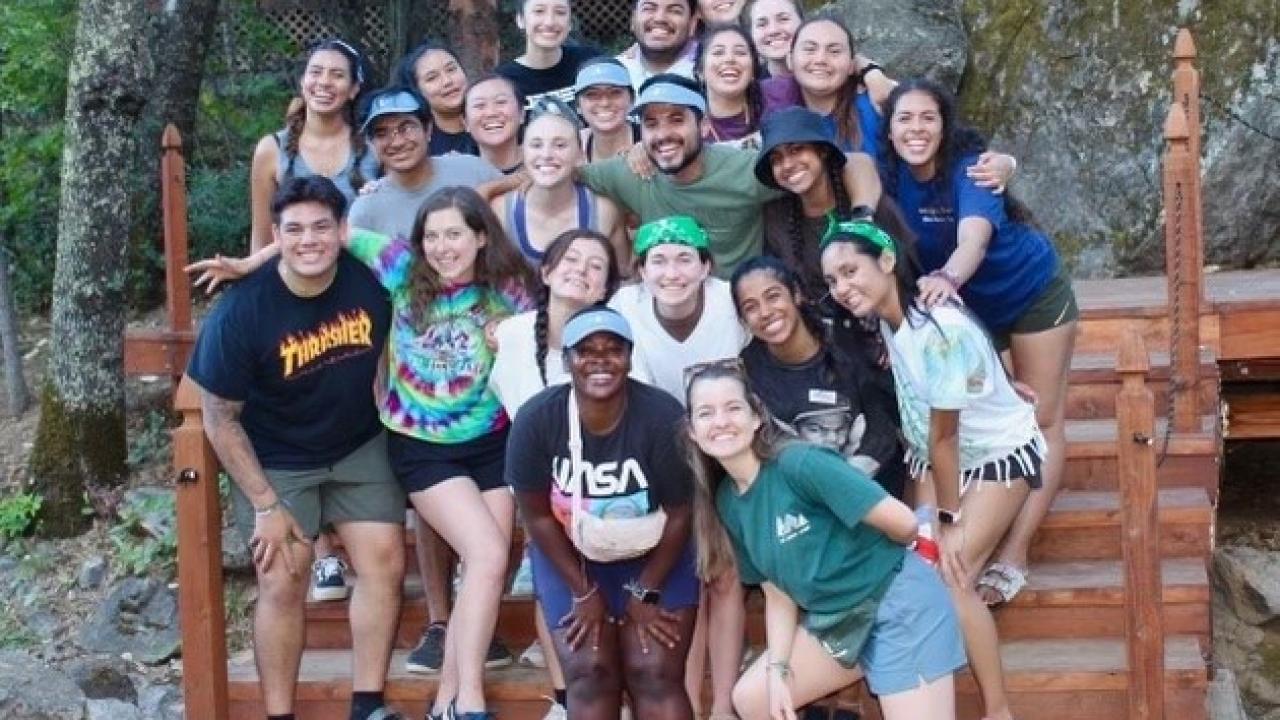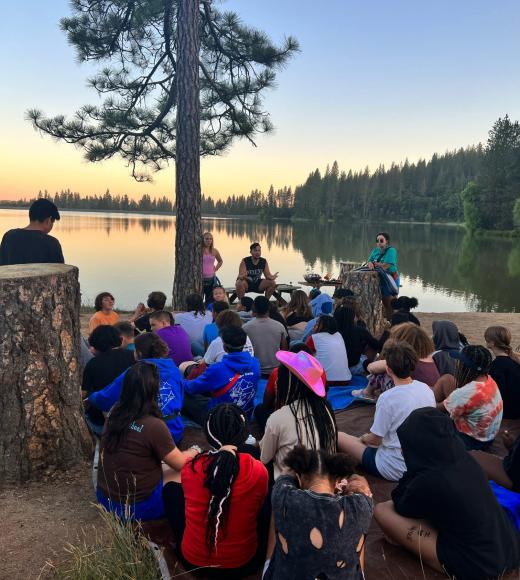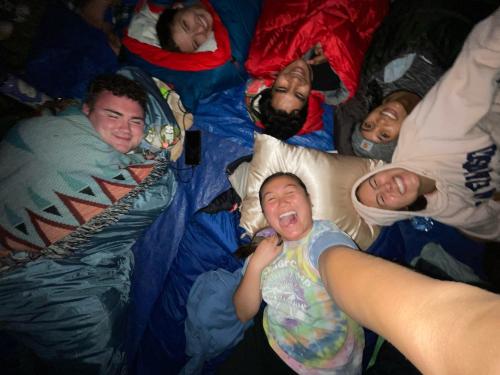
Cal Aggie Camp Introduces Trauma-Informed Training for Camp Counselors
UC Davis Human Services develops new training workshops on trauma and Adverse Childhood Experiences for Cal Aggie Camp counselors.
Cal Aggie Camp, a beloved initiative at UC Davis, has been transforming the lives of both campers and camp counselors for over 60 years. Established to provide an enriching environment for underprivileged youth in Northern California, the camp has placed a significant emphasis on trauma-informed care, recognizing the diverse needs of its campers.
Cal Aggie Camp sought the expertise of the Resource Center for Family-Focused Practice and the Northern Academy (part of UC Davis Continuing and Professional Education, Human Services) to provide specialized trauma-informed training for their volunteer camp counselors, all of whom are UC Davis undergraduates. This year, UC Davis Human Services Program Specialists Jessica Owens and Joycelyn Wormley, both accomplished instructors with extensive backgrounds in social work and trauma-informed care, have been pivotal in adapting their training courses into accessible presentations for the counselors-in-training.
Building a Foundation
Owens has a deep interest in trauma and has conducted numerous training courses on Adverse Childhood Experiences (ACEs). She delivered the first Cal Aggie Camp training in 2023, after tailoring the curriculum to suit her new audience, whose experience working with children ranged from babysitting and classroom assisting to no experience at all. "The ACEs courses we typically offer are geared towards child welfare social workers," Owens explained, "but for Cal Aggie Camp, I adapted the training to focus on engagement strategies for children in a camp setting."

Wormley, a subject matter expert who specializes in racial trauma within the child welfare system, was a new addition to the team, delivering her first Cal Aggie Camp training this year. Her presentation on addressing racial trauma in African American foster youth was particularly impactful to her trainees, as it gave them useful skills to support the large number of campers who are in foster care. "We usually train child welfare social workers who already have a foundation in trauma-informed care," Wormley said. "For the camp counselors, I started with the basics of trauma and racial trauma before delving into its impact on foster youth – they need to understand the basics before they can effectively support the campers.”
Both Owens and Wormley emphasized the importance of making their trainings accessible and practical. Wormley introduced engagement strategies that were easy to grasp and apply, such as the “EARS” approach – Elicit, Amplify, Respond and Summarize/Start Over. "I didn’t want them to walk away with just the theory – I wanted them to have tangible takeaways," she noted. "They needed strategies they could use immediately, like asking 'What’s working well? What are you worried about? What are the next steps? Tell me more.'"
“Learning about racial trauma is important for the camper population we serve because not only do these children come from a background in foster youth, but many also face day-to-day adversities that hinder their ability to enjoy life,” said Coral Pongsuwan, a Cal Aggie Camp student ambassador. “What [Wormley] taught us about the phrase ‘tell me about’ was really powerful because it reflects our camp philosophy of meeting campers where they are at.”
Owens, on the other hand, shared a developmental relationship framework to help the counselors begin to connect with the campers and help them thrive. The framework included steps like expressing care, challenging growth, providing support, sharing power and expanding possibilities. Owens also touched on the impacts of trauma on the body, sharing somatic and mindfulness techniques like breathwork and cross-lateral body movement that help young people connect with their bodies.
Training the Next Generation of Helping Professionals
These trainings had a profound impact on both the instructors and the counselors. Both instructors noted the enthusiasm and dedication of the camp counselors. "They were hungry for knowledge and took the topics very seriously," Wormley observed. "Their questions showed a deep engagement with the material." Owens echoed this sentiment, adding that "being in the same room with such eager learners was incredibly energizing."

Cal Aggie Camp’s new approach to counselor training exemplifies a commitment to continuous learning and adaptation. By equipping their counselors with trauma-informed skills, they are not only enhancing the camp experience for the children but also empowering the counselors with valuable skills for their future careers. "The thing I love most about the idea of Cal Aggie Camp,” added Wormley, “is that it introduces students to the helping profession in a way where they're getting real, hands-on experience." This initiative highlights the importance of real-world application of theoretical knowledge, allowing students to determine their career paths more effectively.
Cal Aggie Camp is more than a summer retreat – it is a beacon of resilience and compassion, developing future leaders who are well-equipped to make a positive impact in their communities. Through the dedicated efforts of instructors like Owens and Wormley, the camp continues to evolve, ensuring that every participant, both camper and counselor, leaves with a greater sense of understanding, empathy and purpose.
Learn More
To learn more about UC Davis Human Services’ work to support the safety and well-being of children, youth and families, visit the website.
